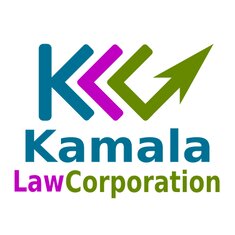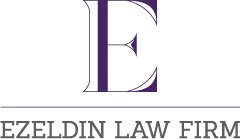Best Business Lawyers in Illinois
Share your needs with us, get contacted by law firms.
Free. Takes 2 min.
Or refine your search by selecting a city:
List of the best lawyers in Illinois, United States
United States Business Legal Questions answered by Lawyers
Browse our 1 legal question about Business in United States and read the lawyer answers, or ask your own questions for free.
- How do I legally protect my idea before selling or licensing it to a company?
- I have a makeup product idea that I want to sell or license, not the product itself. It is influenced by a product that was recently launched. Therefore, I want to sell/license to the company that launched said product. After some research, I contacted a patent attorney who explained that... Read more →
-
Lawyer answer by P.O OHIKHENA & Co
Good day,A patent will not be applicable since it's still an idea. You can go into an MOU(Memorandum of understanding) with the said company and also an NDA.You can contact me for my insight. Visit our profile and send us...
Read full answer
United States Business Legal Articles
Browse our 2 legal articles about Business in United States written by expert lawyers.
- NY 2026 Corp Tax: Thresholds & Franchise
- For tax years beginning on or after January 1, 2026, New York businesses will only be required to make estimated tax payments if their expected New York tax (including any MTA surcharge) is at least $5,000, up from $1,000. Many small and some mid-sized New York corporations and S corporations... Read more →
- Texas AI Compliance 2026 United States Data Privacy Rules
- By 2026, Texas agencies and many businesses that build, host, or support AI tools for government or consumer-facing decisions will face stricter disclosure and anti-discrimination requirements. Texas is pairing its new data privacy framework (Texas Data Privacy and Security Act) with AI-specific rules that target "algorithmic discrimination" in areas like... Read more →
About Business Law in Illinois, United States
Business law in Illinois governs the organization, operation, and dissolution of businesses across the state. It covers a wide range of legal areas, including formation of companies, employment, contracts, taxation, intellectual property protection, mergers and acquisitions, and compliance with local, state, and federal laws. Whether you are launching a startup, growing an established business, or navigating disputes, a solid understanding of Illinois business law is crucial. Following the rules helps ensure that your business operates smoothly and avoids potential legal pitfalls.
Why You May Need a Lawyer
Business owners and entrepreneurs in Illinois may encounter a variety of legal challenges throughout the lifecycle of their enterprise. Here are some common scenarios where legal assistance is beneficial:
- Business Formation: Choosing the appropriate legal structure, such as an LLC, corporation, or partnership, and preparing the necessary documents.
- Contracts: Drafting, reviewing, or negotiating contracts with partners, employees, vendors, or customers to protect your interests.
- Dispute Resolution: Resolving contract disputes, partnership disagreements, or conflicts with customers and suppliers.
- Compliance: Ensuring compliance with local, state, and federal regulations, including licensing, zoning, and employment laws.
- Intellectual Property: Protecting trademarks, copyrights, patents, and trade secrets.
- Employment Issues: Advising on hiring and firing, wage and hour laws, employee benefits, and workplace safety.
- Business Acquisition or Sale: Guiding through the process of buying, selling, or merging businesses, including due diligence and contracts.
- Dissolution or Bankruptcy: Assisting with closing down a business or navigating financial difficulties.
Local Laws Overview
Illinois has a robust set of laws and regulations that govern how businesses operate within the state. Here are some key legal aspects to keep in mind:
- Business Structure: Illinois recognizes various business entities, including sole proprietorships, partnerships, limited liability companies (LLCs), and corporations. Each has distinct advantages, requirements, and tax implications.
- Registration and Licensing: Most businesses must register with the Illinois Secretary of State, obtain an Employer Identification Number (EIN), and secure state and local business licenses.
- Employment Law: Illinois employment law covers wage and hour requirements, anti-discrimination policies, workplace safety, and workers’ compensation.
- Taxation: Businesses are subject to multiple taxes, including state income tax, sales tax, and use tax. Illinois also has specific reporting and payment timelines.
- Contracts: Illinois enforces contracts in business, but certain contracts must be in writing to be valid, such as those involving the sale of real estate or agreements that cannot be completed within one year.
- Commercial Leases: Unique rules apply to commercial tenancies, and lease agreements often require close legal scrutiny.
- Consumer Protection: State laws protect consumers from unfair business practices and require accurate advertising and disclosures.
- Privacy and Data Security: Obligations exist for businesses that collect, store, or process personal information, including the Illinois Personal Information Protection Act.
Frequently Asked Questions
What type of business entity should I choose in Illinois?
The best structure depends on factors like liability, taxation, and management preferences. LLCs and corporations are popular for liability protection, while partnerships and sole proprietorships are simpler but provide less protection. Consulting a lawyer can help you choose the right entity for your goals.
How do I register my business in Illinois?
Typically, you need to file formation documents with the Illinois Secretary of State, register with the Illinois Department of Revenue, and possibly apply for local licenses and permits. The specific steps depend on your business type and location.
Do I need a lawyer to draft contracts?
While not always required, having a lawyer draft or review contracts helps ensure the terms are clear, enforceable, and protect your interests if disputes arise.
What are my legal obligations as an employer in Illinois?
Employers must comply with wage and hour laws, anti-discrimination statutes, workplace safety regulations, payroll tax requirements, and provide certain benefits. Legal counsel can guide you through these complex rules.
How does Illinois tax businesses?
Illinois imposes an income tax on corporations and pass-through entities, as well as sales tax and use tax on goods and certain services. Tax rates and filing requirements vary depending on your business structure and activities.
What should I do if someone sues my business?
Promptly contact a business attorney to evaluate the lawsuit, respond appropriately, and protect your rights. Taking quick action is essential to minimize risks and costs.
How can I protect my business’s intellectual property in Illinois?
You can register trademarks, copyrights, and patents to safeguard your intellectual property. A lawyer can advise you on applications, renewal, and enforcement procedures in Illinois and nationwide.
What are the steps for dissolving a business in Illinois?
Dissolving a business generally involves settling debts, distributing assets, filing dissolution paperwork with the state, and notifying tax authorities. Legal advice ensures the process is handled correctly and minimizes potential liabilities.
Are there specific rules for online businesses in Illinois?
Yes, online businesses must comply with state registration, sales tax collection (including Use Tax for out of state sales), and privacy regulations like the Illinois Personal Information Protection Act.
How do I resolve disputes with business partners or customers?
Options include negotiation, mediation, arbitration, or litigation. The best method depends on the nature and terms of your agreements. Involving an attorney early often leads to quicker and less costly resolutions.
Additional Resources
If you need more information or assistance, the following resources can be helpful:
- Illinois Secretary of State Business Services: Manages business registrations and corporate records.
- Illinois Department of Revenue: Provides guidance and forms for state tax registration and compliance.
- Illinois Attorney General: Oversees consumer protection and provides business compliance information.
- Illinois Small Business Development Center (SBDC): Offers free business advice, mentorship, and workshops.
- Illinois Division of Professional Regulation: Issues state licenses and monitors compliance for certain professions.
- Local Chambers of Commerce: Provide networking, education, and advocacy for area businesses.
Next Steps
If you need legal assistance with your Illinois business, consider these steps:
- Identify your legal issue and gather any related documents or details.
- Consult with a qualified Illinois business attorney who has experience in the specific area you need help with.
- Ask about the attorney's experience, fees, and approach to your type of issue.
- Prepare a list of questions and desired outcomes before your meeting.
- Follow the attorney's advice carefully, and keep records of all communications and legal documents.
- Utilize local resources such as SBDCs, the Secretary of State, or relevant regulatory bodies for additional support and information.
Proper guidance and proactive legal planning can help your Illinois business avoid costly mistakes and achieve lasting success.
Lawzana helps you find the best lawyers and law firms in Illinois through a curated and pre-screened list of qualified legal professionals. Our platform offers rankings and detailed profiles of attorneys and law firms, allowing you to compare based on practice areas, including Business, experience, and client feedback.
Each profile includes a description of the firm's areas of practice, client reviews, team members and partners, year of establishment, spoken languages, office locations, contact information, social media presence, and any published articles or resources. Most firms on our platform speak English and are experienced in both local and international legal matters.
Get a quote from top-rated law firms in Illinois, United States — quickly, securely, and without unnecessary hassle.
Disclaimer:
The information provided on this page is for general informational purposes only and does not constitute legal advice. While we strive to ensure the accuracy and relevance of the content, legal information may change over time, and interpretations of the law can vary. You should always consult with a qualified legal professional for advice specific to your situation.
We disclaim all liability for actions taken or not taken based on the content of this page. If you believe any information is incorrect or outdated, please contact us, and we will review and update it where appropriate.
Browse business law firms by service in Illinois, United States
Illinois, United States Attorneys in related practice areas.
Browse business law firms by city in Illinois
Refine your search by selecting a city.
















